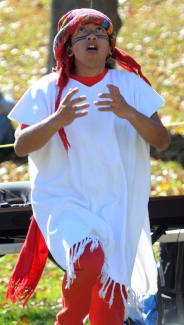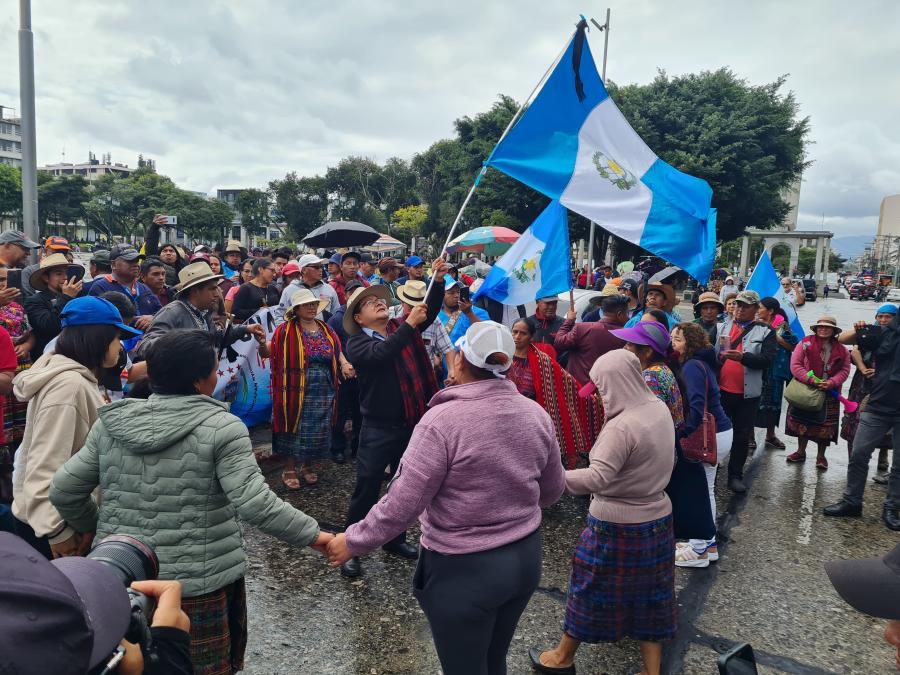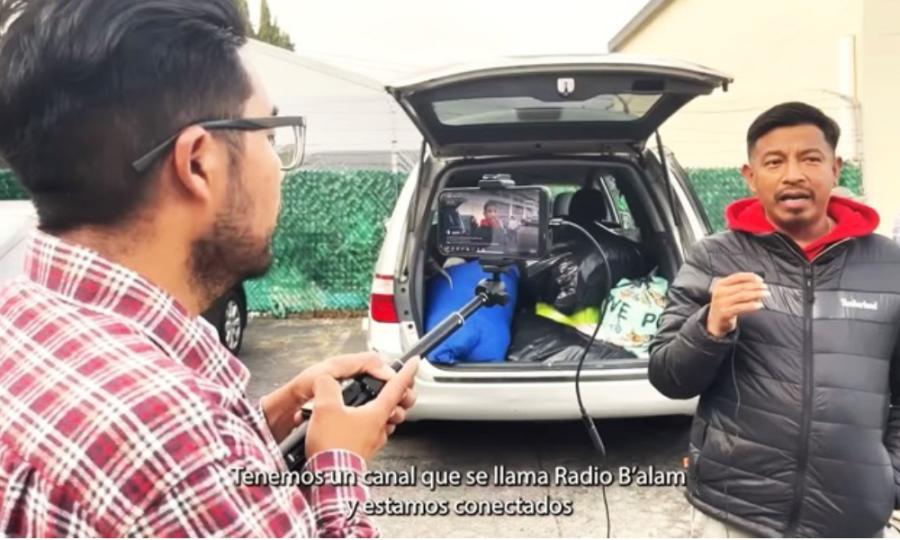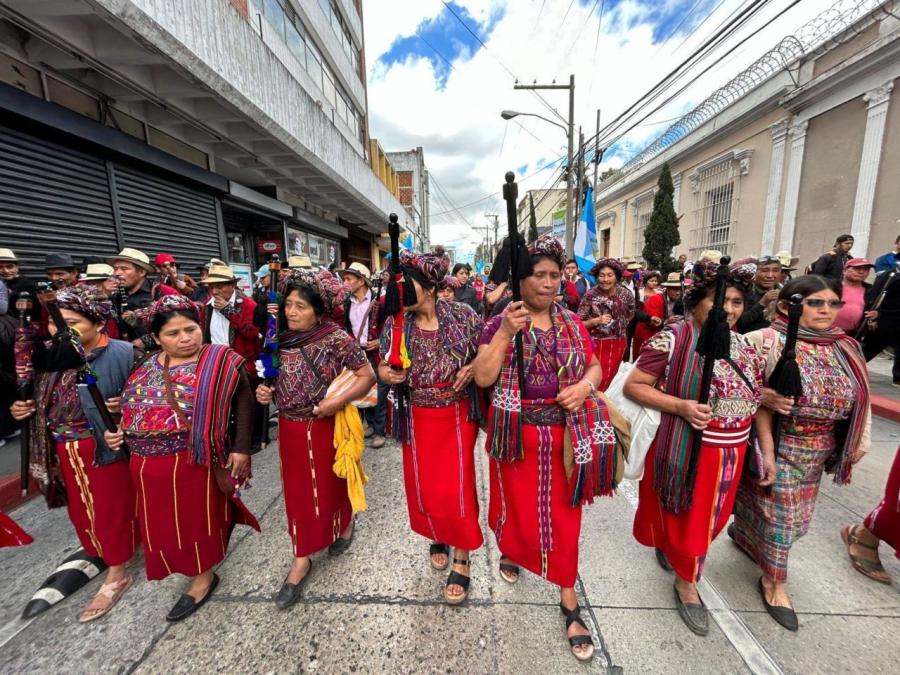
Hailing from what the Maya consider the bellybutton of the Universe—Lake Atitlan in the central Guatemala highlands—Tz’utu Kan is a hip-hop artist who lays down rhymes in the ancient Mayan languages of Tz’utujil, Kakchikuel, and Quiche. He is also a member of the group Balam Ajpu, which means “Jaguar Warrior” or “Warrior of Light.” Balam Ajpu represents duality, the balance of light and dark, male and female energy, and the return to a relationship with the cycles of nature. The group imbues modern culture with meaning through its relationship to ancestral wisdom in the arts and music.
“Language in itself is music. The ancestral sound of languages is music. About six years ago I felt the urge to communicate in my language,” Kan recalls. “I would only speak the language at home, but I felt the need to communicate with my friends, with the people. [So] five years ago I started to work on this project, Cosmovision Maya hip-hop. I began to work with producers and we created a demo with five songs. We haven’t finished this project yet because of a lack of resources, but at the same time we started another project, the 20 Nawales (spirits), and I worked on this with Balam Ajpu, the group I am working with now.”
Balam Ajpu’s members work to revitalize and share their cultures. In Guatemala, there are approximately 23 Maya cultures, most of which speak their own languages. “Our spiritual guides asked us to make a tribute to the nawales in 2012, because it was the change of an era, it was the end of Ba’ak’tun 13 and the start of the jun ba’ak’tun. That was the start, what we based our project on, and now we are touring in Europe,” Kan says.
Balam Ajpu’s lyrics convey interpretations of the ancient Maya calendar through Maya sounds and intercultural borrowing from Native American, Andean, Rastafarian, hip-hop, and dancehall rhythms. They work to instill in youth pride for their culture through their Hip-Hop Cosmovision School in Quetzaltenango, Guatemala. “[The Mayan language] holds thousands of years of knowledge that little by little we are uncovering, as more people study it and more people practice it, write poetry, compose music, write anthologies, poems, books. The album we are promoting is what we call the ‘real’ time, because we use a bad calendar, the mechanical calendar... this is separating us from the calendar of the world’s natural cycles. And that is what we propose, a calendar which has been always used, closer to the exact, closer to the natural,” says Kan.
Kan also works closely with Canal Cultural, a collective of artists in Guatemala that aims to bring about social, political, and economic transformation in rural Maya communities through visual, musical, and performance arts. “We are making a small contribution to music. There are many artists trying to revive ancestral knowledge by way of the arts, through painting, theater, and music,” Kan says. “Through Canal Cultural, we are giving grants to young people so they can learn and grow, cultivate their talents, their art.”
Over the past five years, the group has also worked with children through Escuela Caza Ajaw, a free school of cosmovision hip-hop. “We are not purists; that is why we create a fusion with other things, like hip-hop with reggae, cumbia...that is what we are trying to do, stay afloat with everything that is happening in the world, globalization. We have an advantage, because there aren’t many who are singing in Mayan, not many who promote the Mayan languages,” Kan says. In a country plagued by environmental degradation and economic exploitation, violence, and political instability, Kan sees music as an instrument to teach young people to live in harmony with others and nature by returning to the Maya traditions. “Through art,” he says, “we can contribute to changing humanity, and ourselves.
Check out our upcoming schedule of Cultural Survival Bazaars at www.bazaar.cs.org.
December 11–13: The Shops at Prudential Center, Boston, MA.
December 19–20: Center for Government & International Studies at Harvard University, Cambridge, MA



